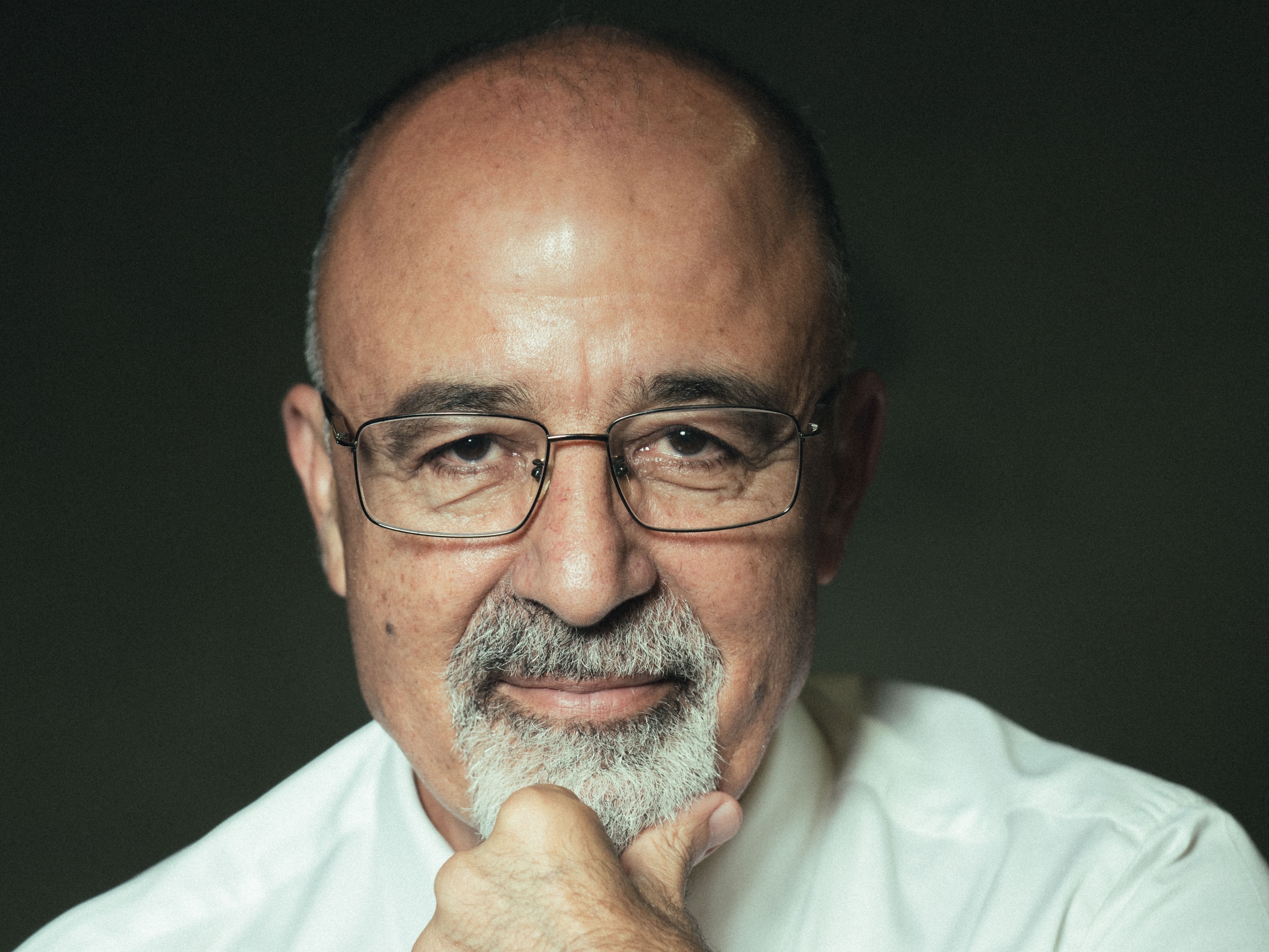A Pure Heart to Help Patients Against Nerve Diseases

Professor Mohamad Sawan. (COURTESY PHOTO)
By LONG Yun & GONG Qian
Canadian scientist Mohamad Sawan, internationally acclaimed for his work in the field of smart medical devices, where he has made significant contributions to developing implantable and wearable devices, is now focusing his research on the human brain in addition to his work in developing smart devices.
A fellow of the Royal Society of Sciences of Canada, Sawan is now living in the city of Hangzhou in east China's Zhejiang province, where he is a faculty member of Westlake University. As founder and director of the Center of Excellence in Biomedical Research on Advanced Integrated-on-chips Neurotechnologies (CenBRAIN Neurotech), he leads a team of 35 researchers working to improve healthcare by diagnosing and treating neurodegenerative disorders -- diseases caused mainly by the cells in the human nervous system malfunctioning, such as Parkinson's and Alzheimer's -- and large variety of brain-related medical conditions.
In this interview with Science and Technology Daily, he talked about CenBRAIN Neurotech, his work, and Hangzhou, a beautiful city with a rich culture and the venue of the 19th Asian Games.
Sawan called CenBRAIN Neurotech, with its excellent laboratory resources, an ideal environment for cutting-edge research and development where the researchers follow an interdisciplinary approach to develop innovative solutions, integrating biomedical engineering, neurotechnology, bioelectronics, and neuromorphic-based AI.
"My dream is to use cutting-edge scientific research and technology to help patients with neurodegenerative diseases return to normal life and improve their quality of life," he said.
His electrical and biomedical engineering background enables him to approach the diagnosis and treatment of neurodegenerative diseases from an engineering perspective. He likened the brain to a "complex machine", where faulty components, or poor connections, cause dysfunctions. His proposed solutions are to use microsystems to replace the malfunctioning components so that they can be stimulated and once again receive neuro signals and process them.
The lab's smart medical devices combine microelectronic integrated circuits, wireless communication, energy harvesting, and other innovations. Its activities also extend to in-vitro diagnosis, diseases prediction, and body functions restoration.
Sawan encourages aspiring scientists, particularly the younger generation, to be creative and think beyond the conventional approach. He says he welcomes challenges to his authority and emphasizes the importance of independent thinking. He applauds China's commitment to education and the cultivation of talented young researchers, and hopes they will be innovative and courageous in expressing their ideas.
As an expert who has foreseen the emergence of AI technology, he urges people to see the positive side of this research and development sector. However, he also cautions against excessive reliance on AI by young people as it can hinder their critical thinking abilities.
As he indicated, scientific research demands time. He follows a draconian work schedule, getting up early and trying his best in the job. Despite the hectic schedule, he still manages to find time to jog around the picturesque West Lake, a prime tourist destination, and along the Qiantang River, enjoying the abundant green spaces, fresh air and bird songs.
His work has been recognized with awards at home and abroad, from the Chinese government's Friendship Award, the highest honor for a foreigner, to the Lebanon Presidential Award and the Barbara Turnbull Award instituted by Canadian Institutes of Health Research and the Barbara Turnbull Foundation for Spinal Cord Research.
This article is also contributed by Westlake University.







